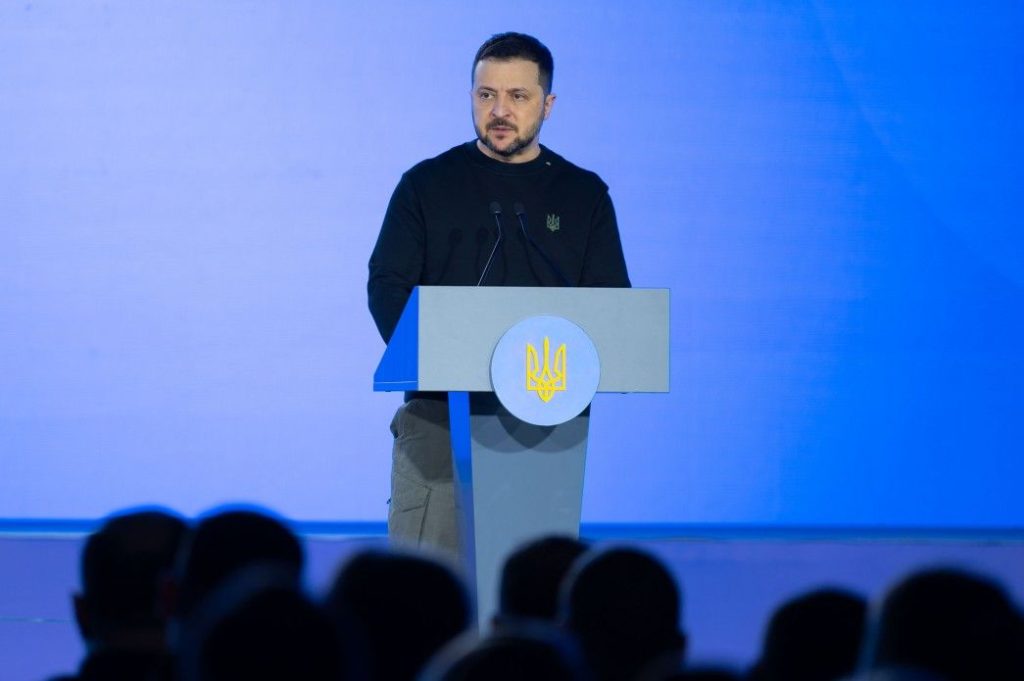President Zelensky of Ukraine announced further government reshuffles in his evening address on March 30, following the dismissal of several key members of his inner circle. The shake-up included the removal of Commissioner for Soldiers’ Rights Alyona Verbytska, Zelensky’s First Aide Serhiy Shefir, and Natalia Pushkaryova. Additionally, three non-staff advisors were also dismissed, as Zelensky emphasized the need to “reboot” state institutions and make the President’s Office more efficient. The changes come amid a wider personnel reshuffle that has seen the replacement of National Security and Defense Council Secretary Oleksiy Danilov with Oleksandr Lytvynenko and Danilov’s appointment as Ukraine’s ambassador to Moldova.
In early 2024, Ukraine signed seven agreements with allied countries to guarantee its security over the next decade and negotiate NATO membership. President Zelensky’s diplomatic adviser mentioned that Ukraine is currently negotiating 10 more bilateral deals to further strengthen its security. These agreements come as Ukraine faces ongoing threats from Russia and strives to solidify its path to victory through enhanced security measures and alliances with allied countries. The agreements reflect Ukraine’s commitment to seeking support from the international community and securing its position in the region.
The ongoing reshuffles and reforms within the Ukrainian government are part of President Zelensky’s efforts to streamline operations and make state institutions more efficient. By dismissing key members of his inner circle and appointing new officials to key positions, Zelensky aims to bring about positive change and improve governance in Ukraine. These changes are also occurring in the context of broader geopolitical challenges facing Ukraine, such as the conflict with Russia and the country’s aspirations for NATO membership. Zelensky’s administration is working towards creating a more effective and responsive government structure to address these challenges.
The dismissal of high-ranking officials in the Presidential Office and the appointment of new individuals to key roles signal a period of transition and change within the Ukrainian government. President Zelensky’s focus on rebooting state institutions and enhancing the efficiency of the President’s Office reflects his commitment to reform and modernization. As Ukraine navigates complex security challenges and seeks to strengthen its alliances with allied countries, these internal changes play a crucial role in shaping the country’s trajectory and ensuring its ability to effectively respond to external threats.
The personnel reshuffles and reforms in Ukraine’s government are taking place against the backdrop of ongoing tensions with Russia and the broader geopolitical landscape in Eastern Europe. President Zelensky’s proactive approach to governance and his commitment to making the state institutions more efficient have implications for Ukraine’s stability and security. By prioritizing reforms and making strategic changes within the government, Zelensky aims to bolster Ukraine’s resilience and capacity to navigate the complex challenges it faces. The ongoing reshuffles also underscore the administration’s determination to tackle issues head-on and drive positive change in the country.
As Ukraine continues to face external threats and navigate its path towards NATO membership, the country’s government is undergoing significant changes and reforms under President Zelensky’s leadership. The dismissal of key officials in the Presidential Office and the appointment of new advisors reflect a shift towards a more efficient and responsive governance structure. By focusing on enhancing the state institutions and forging strategic security agreements with allied countries, Ukraine aims to strengthen its position in the region and ensure its ability to address security challenges effectively. The ongoing reshuffles and reforms signal a period of transformation and adaptation as Ukraine seeks to protect its sovereignty and pursue its strategic objectives.


